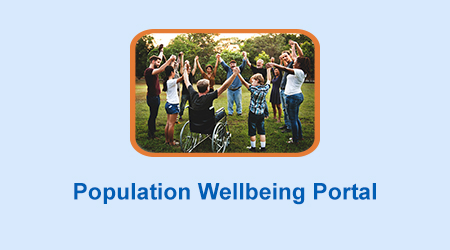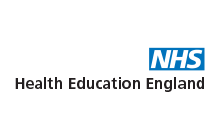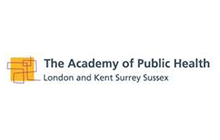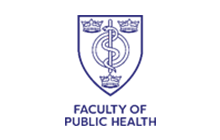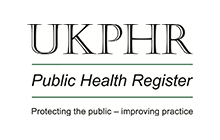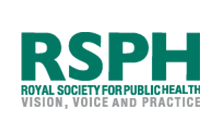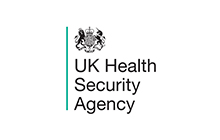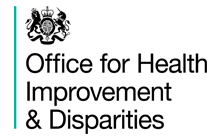About the Population Wellbeing Portal
The Population Wellbeing Portal resources are free to access by anyone working in healthcare and population health.
HEE has provided a central location for elearning, reading material, guidance, toolkits, videos and factsheets from multiple sources. It links with All Our Health, a framework of evidence to guide healthcare professionals in preventing illness, protecting health and promoting wellbeing.
Whatever your involvement with in improving the health of the population, these resources will support you in expanding your knowledge and understanding and enable you to have a positive impact.
Health Education England e-learning for healthcare branded resources are produced and kept up to date by experts in the topic area. The portal also contains links to websites owned and operated by third parties. These are labelled as ‘external resources’ you are advised that the content on these websites has not been quality assured by the portal team.
If you have suggestions for additional content that could be made available via the Portal, please contact population.wellbeing@e-lfh.org.uk.
Programmes
-
Alcohol (PWP)
Alcohol misuse is a common public health problem. The direct health impacts are serious and can lead to early death, for example, through liver disease. Alcohol is a risk factor for the development of some cancers. The indirect effects of alcohol, such as its contribution towards violence and accidents, are also serious. The resources found in the portal help workforces to identify when someone may have an alcohol problem and provide brief interventions. There are also more specialist resources for those managing patients with various forms of substance misuse.
To view this programme click here, you will be asked to login to elfh and then enrol onto the programme.
-
Child Health (PWP)
Children represent the future and ensuring their healthy growth and development should be a prime concern for all societies. Newborns are particularly vulnerable and children are vulnerable to malnutrition and infectious diseases, many of which can be effectively prevented or treated.
The resources found in the portal support people to develop the knowledge and skills to improve health and wellbeing and prevent ill health covering topics such as childhood obesity, vaccinations and mental health and wellbeing.
To view this programme click here, you will be asked to login to elfh and then enrol onto the programme.
-
Gambling (PWP)
The NHS and the wider care system can play a key role to support people who have serious problems or are at risk of developing problems due to gambling.
Problem gambling affects many people in England and can cause issues with mental and physical health. It can also have negative impacts on the quality of life of a person, leading to financial problems and the breakdown of relationships.
This programme contains materials that raise awareness of the topic, as well as interventions with resources to support people.
To view this programme click here, you will be asked to login to elfh and then enrol onto the programme.
-
Health Inequalities (PWP)
Health inequalities are unfair and avoidable differences in health across the population, and between different groups within society. Health inequalities arise because of the conditions in which we are born, grow, live, work and age. These conditions influence our opportunities for good health and how we think, feel and act, and this shapes our mental health, physical health and wellbeing. The resources found in the portal can help workforces to learn about health inequalities, the effect of these on the quality and length of life of our populations and how sectors and communities can work together to tackle these.
To view this programme click here, you will be asked to login to elfh and then enrol onto the programme.
-
Housing and Homeless (PWP)
Housing is fundamental to our health. Research shows that 1 in 5 homes present a risk to health and wellbeing, particularly from excess cold and falls. The impact on physical health is clear, for example, damp surroundings cause respiratory diseases or a broken stairwell can lead to trips and falls. Poor housing also has a serious bearing on mental health and wellbeing, particularly cold homes, unsuitable homes and overcrowded homes. These resources aim to support people to understand the impact of housing and homelessness on health and provide an opportunity to harness the resources, talents and energy from across health, social care and housing sectors to create homes that promote health at every stage of the life course.
To view this programme click here, you will be asked to login to elfh and then enrol onto the programme.
-
Infection Management (PWP)
Infection management is a key prevention priority in the NHS and the whole population.
Infections caused by organisms that are resistant to antibiotics are a cause for serious concern to modern day medicine. The overuse of existing antibiotics can lead to resistance in treating illness. Having no suitable antibiotics to treat infections could result in minor surgery and routine operations becoming high risk procedures. Our antimicrobial resistance (AMR) resources aim to support workforces in recognising the threats posed by antimicrobial resistance and how they can help overcome this threat.
Infection Prevention and Control (IPC) resources offer an understanding in how staff can support and contribute to this prevention agenda in different care settings.
To view this programme click here, you will be asked to login to elfh and then enrol onto the programme.
-
Loneliness and Social Isolation (PWP)
This programme contains various resources on the topics of loneliness and social isolation. The resources include evidence-based reports, guidance, factsheets, videos and local information on services to address loneliness and social isolation. It is helpful for anyone with an interest in understanding, preventing and addressing this social determinant of health.
To view this programme click here, you will be asked to login to elfh and then enrol onto the programme.
-
Nutrition and Obesity (PWP)
A healthy diet and body weight are essential components of maintaining good health and wellbeing. Poor nutrition and obesity can increase the risk of developing various non-communicable diseases such as diabetes, cardiovascular disease and some cancers. The resources found in the portal help to develop knowledge and understanding of obesity and weight management, as well as recognising the importance of nutrition and malnutrition in delivering patient care.
To view this programme click here, you will be asked to login to elfh and then enrol onto the programme.
-
Oral Health (PWP)
Oral and dental health is important at all ages. The resources on the portal support those involved in the care of patients requiring mouth care and staff involved in improving the dental health of children.
To view this programme click here, you will be asked to login to elfh and then enrol onto the programme.
-
Prevention and Health Improvement (PWP)
All staff across the NHS and wider care system can contribute to preventing disease and improving the health of their patients and the wider population. This programme provides a variety of resources intended to help and support staff from a range of backgrounds in their contact with patients and their families. Resources cover prevention, health promotion and improvement, wellbeing in the workplace, physical activity, making every contact count (MECC), loneliness and social prescribing, behaviour change and sleep.
To view this programme click here, you will be asked to login to elfh and then enrol onto the programme.
-
Public Health Professionals (PWP)
Public health professionals work on a wide variety of topics and often use specialist knowledge and skills. The resources found in the portal support the development of some of the technical and specialist skills within public health.
To view this programme click here, you will be asked to login to elfh and then enrol onto the programme.
-
Safeguarding (PWP)
To live a life free from abuse and harm is a basic human right. We are all responsible for the protection of people at risk from abuse. This section contains elearning resources to support safeguarding vulnerable adults, children and young people.
To view this programme click here, you will be asked to login to elfh and then enrol onto the programme.
-
Screening (PWP)
Screening is an important public health intervention and the NHS runs a range of national screening programmes. The resources found here cover all national screening programmes and are aimed at those involved in delivering these programmes.
To view this programme click here, you will be asked to login to elfh and then enrol onto the programme.
-
Sexual Health (PWP)
Sexual and reproductive health is a fundamental public health issue and clearly recognised as such by the World Health Organization (2015). Sexual and reproductive health includes the provision of contraceptive methods such as implants, intrauterine devices and hormonal contraception and the diagnosis, treatment, management of sexually transmitted infections and HIV care. It also covers the public health role of partner notification and promotion of safer sex and includes support for individuals in relation to sexuality and healthy sexual relationships. The role of nurses, midwives and health practitioners across sexual and reproductive health is essential to the delivery of high quality care to support males, females, trans, non-binary and intersex people who may be vulnerable through unprotected or condomless sex including sex workers, homeless people, as well as victims of sexual assault, domestic violence and grooming.
To view this programme click here, you will be asked to login to elfh and then enrol onto the programme.
-
Tobacco Dependence (PWP)
14.4% of adults in England (around 6 million people) currently smoke (2018). 1 in 3 cigarettes are smoked by someone with a mental health condition and just over 1 in 10 babies are born to a mother who smoked during pregnancy. However, 3 in 5 smokers say they want to quit. The elearning resources provide information and training on what we know works to help people stop smoking so we can reach the government ambition for England to become smokefree by 2030.
To view this programme click here, you will be asked to login to elfh and then enrol onto the programme.
-
Substance Misuse (PWP)
Drug misuse is a major contributor to premature mortality. People who use drugs are up to 10 times more likely to die suddenly or as a result of chronic diseases than people who do not use drugs. Many of these deaths are preventable. These resources enable people to develop knowledge and skills in this area to improve health and wellbeing and prevent premature death.
To view this programme click here, you will be asked to login to elfh and then enrol onto the programme.
-
Wellbeing and Mental Health (PWP)
Mental health problems are common, with 1 in 4 people in the UK experiencing a mental health problem each year. 1 in 10 children aged 5 to 16 has a diagnosable mental health problem. Public mental health focuses on the wider prevention of mental illness and promotion of mental health across the life course of a person. The resources found in the portal help to raise awareness of mental wellbeing and are suitable for upskilling the workforce who commission and provide services.
To view this programme click here, you will be asked to login to elfh and then enrol onto the programme.
Meet the team

Dr Neil Ralph
National Programme Manager, Technology Enhanced Learning
Mohamed Sadak
Programme Lead, Long Term Conditions
Margit Veveris
Senior Project Manager, Population Health and Prevention
Janet Flint
National Programme Lead, Long Term Conditions and Prevention, Maternity and Children and Young People
Heidi Breed
Programme Manager, Directorate of Education and Quality
Emma Nye
Programme Manager, HEE elearning for healthcare
CJ McKay
Project Manager, HEE elearning for healthcare
Alex Drinkall
Communications and Stakeholder Lead, HEE elearning for healthcare
Louise Garrahan
Communications and Stakeholder Officer, HEE elearning for healthcare
Jasmine Deol
Project Manager, HEE elearning for healthcare
Acknowledgements
Thank you to the following colleagues who were originally involved in the development of this programme:
- Antonio De Gregorio – former Programme Coordinator, Population Health and Prevention
- Claire Cheminade – former Programme Manager, Population Health and Prevention
- John Battersby – former Consultant in Public Health and Health intelligence Training and Workforce Lead
- Tara Bush – former Project Support Officer, Population Health and Prevention
- Martin Sinclair – former Programme Lead, HEE elearning for healthcare
- Clair Guy – former Project Manager, HEE elearning for healthcare
How to access
Please register and then log in to access this programme on the elfh Hub.
If you already have an account with elfh, then you can enrol on to the Population Wellbeing Portal programme by logging in to the elfh Hub, selecting My Account > Enrolment and selecting the programme. You can then access the programme immediately in the My e-Learning section.
Registering large numbers of users
If you are a HR, IT or Practice Manager and would like to register and enrol large numbers of staff within your organisation for access onto the Population Wellbeing Portal programme, please contact elfh directly.
Organisations wishing to use their own LMS
For HR departments wanting to know more about gaining access to courses using an existing Learning Management System please contact elfh directly to express interest.
More information
Please select the following link for more information on how to use the elfh Hub.



